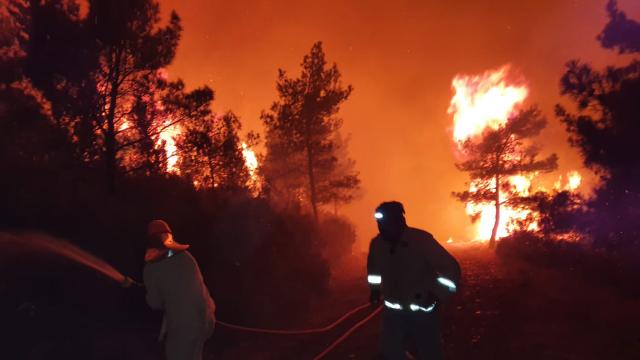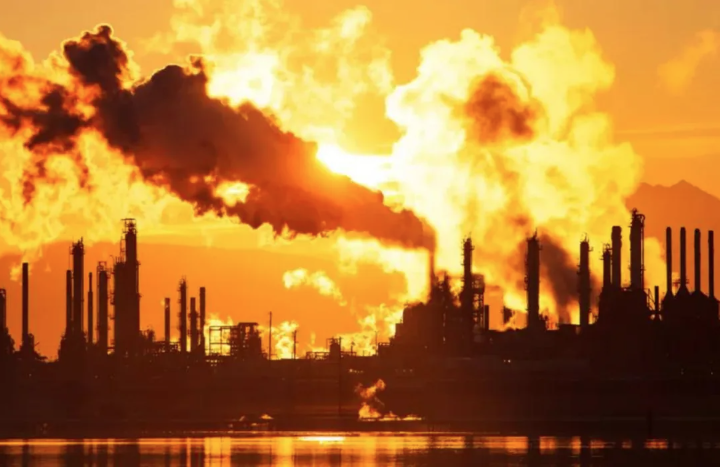Extreme weather events due to climate change brought environmental disasters in June.

Around the world, June witnessed environmental disasters caused by climate change, including heavy rainfall, fires, extreme heat and dust storms.
Floods, landslides and accidents occurred in Brazil, Bosnia and Herzegovina, Pakistan, China, Bangladesh, India and Colombia.
- Samsung users are happy! Android 12 update for three models
- NASA Solar Observatory Captures Stunning Solar Eclipse in Space
Disasters in these countries have left many injured, missing, homeless and hundreds of people dead. In India and Bangladesh, where heavy rains affected millions of people, water-borne diseases emerged and access to food became difficult.
Extreme heat caused fires in several countries, including Afghanistan, Pakistan, Spain and Turkey. Not only people were killed or injured in the fires that burned agricultural land and trees to ashes, but also living creatures in the fields and forests.
In Spain, where hot weather exceeding 43 degrees Celsius caused forest fires in at least 30 places, thousands of people had to leave their homes, especially in the northern regions of the country.
In Iraq, frequent dust storms caused air and environmental pollution, increased diseases and canceled some flights in the capital Baghdad. Casim al-Filahi, Iraq’s deputy environment minister, said in a statement to AA correspondent, “Iraq is one of the countries suffering from climate change worldwide.”
As natural disasters are on the rise in the central and western parts of the US, some parts of the country have been hit by excessive rain and flooding, while in other parts the heat and humidity have overwhelmed. Disasters have not only negatively affected people’s lives. In Kansas, at least 2,000 cattle perished due to humidity and heat.
Global climate and environmental protests
Protests against environmental degradation continued in many countries. Activists and protesters demanded a decisive fight against climate change.
The Fridays For Future initiative organized demonstrations in different countries every Friday in June to draw attention to climate change and environmental issues.
In the demonstrations in Munich, Germany, demonstrators pointed to the policies against climate change and demanded “systematic change”.
Climate activists also showed up at the “Summit of the Americas” in Los Angeles, California, USA. With banners, activists demanded action against the oil spill that started in Ecuador and spread to the Amazon forests.
In Belgium, activists protesting the use of pesticides that kill bees poured 1 ton of beet pulp in front of the Ministry of Agriculture.
During the United Nations Ocean Conference in Lisbon, Portugal, activists from the environmental organization Greenpeace protested against the unfair policies of world leaders to keep the oceans healthy.
“100 million tons of additional greenhouse gas emissions avoided annually”
Meanwhile, published reports and statements by officials shed light on climate change and its impacts, as well as the food crisis and plastic waste.
President Recep Tayyip Erdoğan attended the Major Economies Forum on energy and climate on June 17 via live link.
Emphasizing that renewable energy is another tool in the fight against climate change, President Erdoğan said, “With the improvements we have made in the field of energy, 100 million tons of additional greenhouse gas emissions have been avoided annually.”
In Canada, the process was restarted for the plastic bag ban, which was announced to be implemented in 2021 but postponed due to the COVID-19 outbreak. In the country, single-use plastic materials will be removed from sale at the end of 2023.
On the other hand, officials from the United Nations (UN) Food and Agriculture Organization made a statement regarding the global food crisis caused by the COVID-19 outbreak and the Russia-Ukraine War. Officials stated that there will be no famine, but there will be food shortages for a long time, especially in countries with low production capacity.
UN High Commissioner for Human Rights Michelle Bachelet, in a statement on the risks of the war in Ukraine, said the global food, fuel and financial crises risk pushing millions into food insecurity and poverty.
In a report published by the Organization for Economic Cooperation and Development (OECD), it was warned that global plastic waste will almost triple by 2060.




